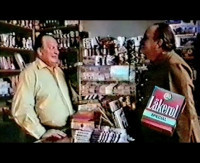New book about Raoul Wallenberg
18/5, 2012 kl. 18:02The role of Sweden during World War II has been a controversial one, with the Swedish government allowing German troops traveling through Sweden and also exporting iron ore to Germany. Like many other countries, both before and after the war, the Swedish government was ambivalent about how to coup with the expulsion of the German Jews.

With the Russians fast closing in on the Hungarian capital, the work under Adolf Eichmann (who had been sent to Hungary as an overseer) had to be resolved quickly. With the help of members from the Arrow Cross, the Germans started to round up Jews in the city, and confined in special quarters before they were to be transported to Auschwitz. Wallenberg was trying to help as many Jews as possible, and together with few diplomats still left in the Hungarian capital they tried to stop the deportation. After striking a deal with Eichmann that citizens of neutral countries were off-limit for deportations, Wallenberg and others started to hand out temporary passes to the Hungarian Jews. In this way thousands were saved, and Wallenberg and others went to extreme measures in trying to convince Germans and Hungarians that the Jews were Swedish citizens and should be spared. In late autumn the Soviets had encircled the capital, and this meant that the deportations stopped. Instead the Germans and Hungarians changed tactics, and they started to execute the Jews still left in Budapest. Wallenberg’s work then became even more dangerous. Faced with intoxicated members of the firing squads, he traveled around the war torn capital, where heavy street-fighting made the trips even more dangerous.When the city fell, Wallenberg tried to make his way out, but got arrested by the Soviets. What then happened, and why he got arrested, has never been fully explained. The last traces of Wallenberg end in the infamous Lubyanka prison, where he apparently was taken to be interrogated. The question of what really happened to Wallenberg has since been a constant thorn in the side of the relation between Sweden and the Soviet Union/Russia. But neither a constant flow of books and historians searching the Russian archives has been able to answer the question of why Wallenberg was arrested, and what happened to him. One of the more popular explanations is that the Soviets suspected him of being a spy, either for the Germans or the Allies. Another explanation is that the reason was to use him as a bargain, as a member of the rich and influential Wallenberg-family; the Russians perhaps thought they could make either the Swedish government or his family, pay the Russians a ransom for his release.
A new Swedish book titled “Raoul Wallenberg – en Biografi” (Raoul Wallenberg – a biography) by Bength Jangfeldt, gives a new explanation to why Wallenberg disappeared. According to Jangfeldt, the reason why Wallenberg was arrested was that he was trying to smuggle gold out of the besieged city of Budapest. How the Russians managed to find the gold, which was apparently hidden in the cars petrol tank, is unknown, but Jangfeld tells a story about how a high Russian officer apparently steals Wallenberg’s Studebaker, and crashes it. Perhaps the Russians found the gold when they tried to repair the car, which could confirm their suspicions that Wallenberg was a spy (either for the Germans or the Allies). Taken into custody, the gold disappeared. Jangfeldt thinks that the gold probably was stolen, and that whoever did it, must have done it before the Russian authorities noticed it. The reason for this is that the gold, that according to sources Jangfeldt cites in his book, has never been mentioned by the Russian authorities, and that it would confirm their belief that he was a spy.But why was Wallenberg carrying 15 kilos of gold in the fuel tank to his Studebaker, on this subject the article is vague. One thesis is that he was trying to help some of the Jews, who possibly were aware that the Russians would loot everything when the city fell, tried to save their gold and that Wallenberg offered his services. Another possibility is that the gold was payment from Jews he saved, and that he also was aware that the town would be totally sacked. Perhaps he thought his diplomatic immunity would save him, but fate would not be with him.
But the Russians weren’t the only ones who had doubts about the reason why Wallenberg was trying to smuggle out 15 kilos of gold, the Swedish Foreign Office was also puzzled. Some seems to have been convinced that he was trying to enrich himself, and Wallenberg had never been very well liked among some of the Swedish diplomatic scene. When the Swedish diplomat Staffan Söderblom, who was convinced that Wallenberg died in an accident, met Josef Stalin after the war and he said the following to the Russian dictator:
“Yes, I'm convinced that Wallenberg has been a victim of either a car accident or armed robbery” (Ja, jag är personligen övertygad om att Wallenberg fallit offer för en olycka eller för väpnat rån).
This rather startling announcement perhaps sealed Wallenberg’s fate, because Stalin answered: “I will deal with the case of Wallenberg” (Jag ska ta mig an Wallenberg-fallet).
Patrik Edlund
Soruces: Wallenberg hade bilen full av guld
Läs: http://blogg.krigshistoria.net/
Denna artikel är publicerad på CFA Nytt via SvenskPress.se.
Se villkor här »

Kommentarer
Ingen har ännu kommenterat denna artikel, du kan bli den första!






























